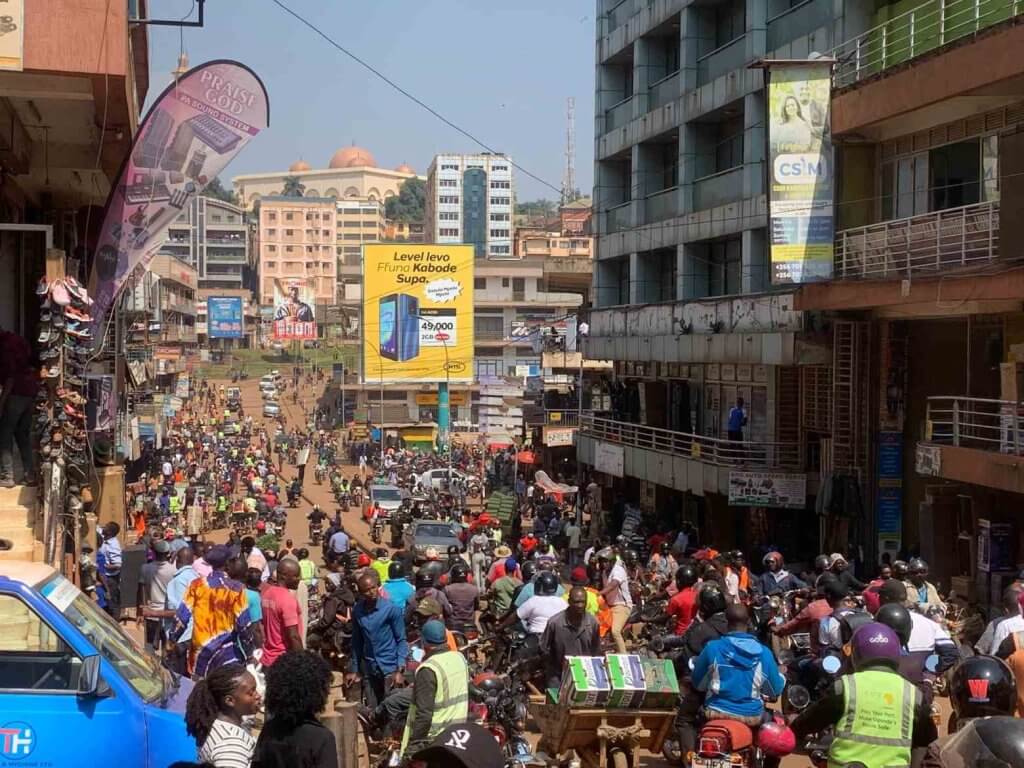Ugandans on Tuesday, July 23rd, 2024, maintained normal routine business operations after boycotting the “March to Parliament” protest.
In Kampala, traders in most suburbs, including downtown, remained focused on their daily business activities.
Reports from our reporters deployed across the country confirmed that despite isolated attempts within Kampala by a group of youth holding placards that were effectively calmed down by the security, no major protests had been reported.
In downtown Kampala, most traders maintained their routine operations while freely interacting with the security operatives, which included the police and army deployed to provide sanity.
Our reporters from Gulu, Arua, Lira, Mbarara, Jinja, Fort Portal, Kabale, Mbale, Soroti, Moroto, and Hoima, among others, said there wasn’t a single attempt to protest, contrary to what had previously been hinted at by the organizers.
Johnson Mugisha, a wholesale businessman in downtown, said as traders, they boycotted the protest, saying it would add no value to their operations.
Mugisha applauded security operatives for not violently countering the few isolated attempts by the youth.
“The reluctance among Ugandans this time suggests that many citizens feel that these protests lead to violence, destruction of property, and a waste of time since they often don’t lead to tangible results,” said Mugisha.
Amos Mugerwa, another trader downtown, noted that they would rather go to their businesses than get involved in baseless protests, which will not yield any positive results, yet they have families to feed and loans to pay.
“You see people downtown here; we operate on loans, we have families to feed, and we have bills to clear. We accessed this protest and realized they wouldn’t have any positive results for us as the business community, especially when we saw in the media that they were sponsored by homosexual people and politicians. We cannot be a part of something that will affect our culture and erode our values,” Mugerwa said.
Martin Odongo, another trader from Soroti, said that one must first understand the dynamics and economic landscape of Uganda because it plays a significant role.
With the harsh conditions they were pushed into due to the COVID-19 pandemic, people are struggling to make ends meet, and the need for stability and income has become paramount.
“Small businesses in particular are vital to the economy, so any disruptions can cause devastating effects. As a result, most of us are choosing to prioritize our businesses, and we see protests as a risk because they can lead to looting and burning of property,” Odongo said.
Francis Wandawa from Mbale said social media including TikTok, Twitter, and Facebook have become instrumental in serving as tools for discussion and information.
“Many Ugandans are utilizing these platforms to voice their opinions and raise awareness about issues without the need for physical demonstrations,” Wandawa said.
The sources further attributed the poor turnout to the government beefing up security in major city towns, which has created fear among those who had planned to loot and enrich themselves through the protests like it was in Kenya.
The decision by many Ugandans to prioritize their culture, businesses, and daily lives over protests highlights a complex interaction of economic necessity and social dynamics.
